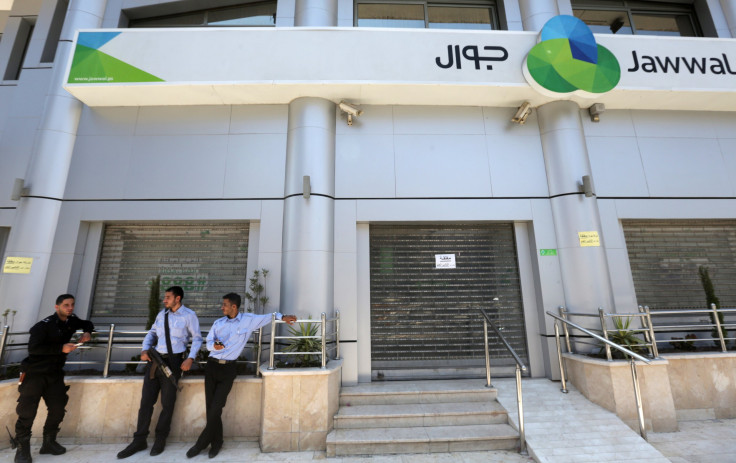Hamas Closes Gaza's Only Cell Phone Service Provider For Alleged Tax Evasion

The only mobile service provider in the Gaza Strip was shut down for allegedly not paying its taxes, according to Lebanon’s Daily Star. On the order of the Hamas, police were deployed outside the company’s headquarters Tuesday.
The company, Jawwal, provides mobile service to 1.3 million residents in Gaza. Cell phone and internet service continued to operate Tuesday, but it remained unclear how long that will continue. Jawwal is a division of the Palestine Telecommunications Company (PalTel), the largest company in Palestine, which operates in both the West Bank and the Gaza Strip.
After Jawwal was forced to shut down, PalTel announced that it will also be closing its operations in the Gaza Strip. PalTel is an important provider of internet services in the region.
Mobile service is crucial to residents in Gaza, who often rely on their cell phones to receive security warnings about incoming strikes and to maintain contact with employers and family abroad. "It is impossible to provide services to citizens under threats to the security and safety of both subscribers and employees," PalTel said in a statement.
Gaza’s attorney general ordered the company to close after failing to pay the necessary taxes in the Hamas-controlled Gaza Strip. PalTel's chief executive officer claimed that the necessary payments were made to the Palestinian Authority, the party governing the West Bank. PalTel is registered in the West Bank.
The Palestinian Authority condemned Hamas’ actions with Jawwal, claiming that shutting down the company in Gaza was "illegal” and that it could “deepen division and undermine reconciliation,” between the two territories. Hamas is in control of Gaza, but because the armed political party is listed as a terrorist organization in both the U.S. and the European Union, it complicates the company’s dealings with the international community.
Paying taxes in both territories "may expose national economic institutions that work within an international system to questions and sanctions that may result in grave damage," PalTel's CEO Ammar Aker told the Daily Star.
© Copyright IBTimes 2025. All rights reserved.






















